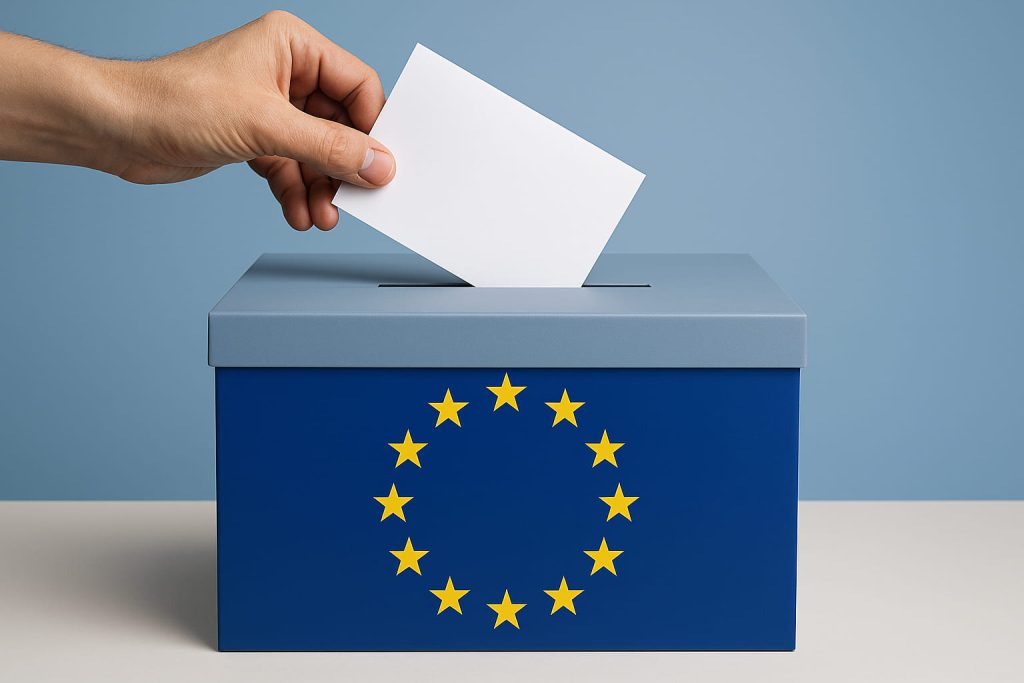2014 European elections: an upsurge in Europhobia or business as usual?

Our director Yves Bertoncini provides a detailed assessment of the results of the 2014 European elections, in a Policy paper drawing three complementary lessons.
A new victory for parties of the “grand coalition”
Parties belonging to EPP as well as S&D respectively won 29% and 25% of seats, while all the other political forces won less than 10% of seats. The elected representatives of these two groups are to shape most of the EP’s decisions during the 2014-2019 term.
Parties affiliated to the EPP or the S&D groups came out on top in 20 of the 28 EU countries. In 3 others, parties affiliated to the ALDE group received the most votes. Other parties were only able to reach the top three in very limited cases, i.e. 22 out of 84.
A comparison with 2009 shows a relative decline for the EPP group (29% vs 36% seats), a stability for the S&D group (25% of seats). The ALDE group has dropped from 12% to 8.9% of seats, the Greens group from 7,4% to 6.6% while the ECR group has risen from 7.3% to 9.3%.
The progression of Eurosceptic and Europhobe constellations
It is helpful to analyse the political forces thought to be hostile to EU while making a clear distinction between “Eurosceptic” parties, which strongly voice their discontent with the EU, the Euro area or the Schengen area, but do not take up a stance in favour of their country’s withdrawal, and “Europhobe” parties, which strongly advocate such a withdrawal.
30 Eurosceptic parties or coalitions, in 16 countries, obtained at least one seat at the EP, while 16 Europhobe parties or coalitions, in 13 countries, did the same. These parties have therefore gained around 40 seats each, with a much clearer relative increase for Europhobes (+50% for Eurosceptics as against +100% for Europhobes).
This double progression has no real institutional impact at the EP, where these parties do not form a coherent political block but two disparate constellations. Its impact must then be assessed on the political register, focusing on national politics and the European council.
Abstention at the May 2014 elections: at a normal level?
The very high level of abstention in May 2014 (57.4%) proved relatively stable compared to the 2009 level.EU countries once again broken down into one half in which abstention is on the rise and the other half in which it is stagnating or declining.
The “turn-out deficit” in the EP elections is above all related to the EU’s “power deficit”: the abstention rate is at levels comparable to those recorded during “subsidiary elections” of the same type (Swiss and US federal elections).
A correlation between this low turn-out and an expression of rejection of the EU may exist in countries like the UK and the Czech Republic, but it can’t be applied to countries like Poland (low level of mistrust but low turnout) or Italy (high level of mistrust but high turnout).
Qualitative surveys conducted after May 2014 allow to detect only some minor signs of abstention synonymous with EU-related mistrust. The roots of a negative perception should rather be sought among voters, as 7% of them voted to express their disapproval with the EU.
This policy paper is the English version of an article published in February 2015 in “L’Etat de l’opinion 2015”, presented by Olivier Duhamel and Edouard Lecerf and edited by TNS Sofres and Seuil.




